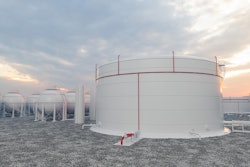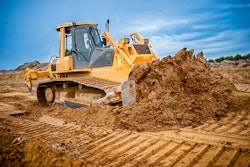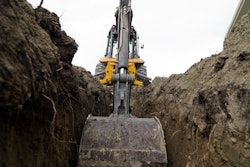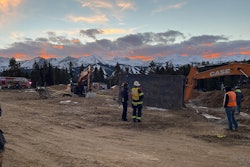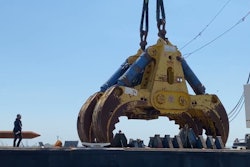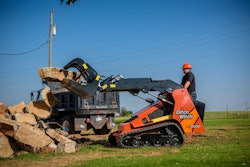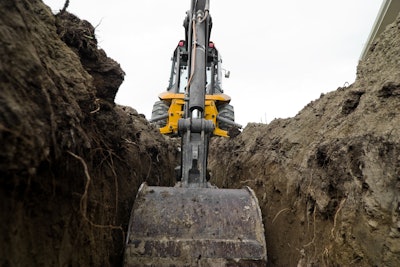
A Minnesota contractor is facing proposed penalties of more than $1.8 million for repeated trench violations – four in the past four years – according to the U.S. Occupational Safety & Health Administration.
The $1,862,284 in proposed fines for Wagner Construction Inc., based in International Falls, appears to be the largest single OSHA penalty amount issued to a company in at least two years for a trench violation. The fines follow a settlement agreement between Wagner and OSHA in 2021 for similar violations. It marks the fourth time in four years the company has been cited for such violations, OSHA says.
In the 2021 agreement, Wagner paid a reduced fine of $380,000, down from the original $583,334. The company also agreed to other requirements, such as training its employees on trench safety and developing a detailed safety plan. The company hired a full-time safety manager and agreed to buy new trench-safety equipment, OSHA said at the time.
In the recent set of violations, OSHA cited Wagner on individual cases, rather than lumping the violations together as it often does. That resulted in 16 repeat violations and one serious violation.
The recent violations, issued November 29, stem from a project June 1-7 in Minot, North Dakota, in which workers were replacing a residential water main and 20 separate curb-stop valves, according to OSHA.
The agency said it got a complaint workers were in trenches without proper protection. This follows the 13 violations cited between 2019 and 2020 on projects in Bismarck, North Dakota, that led to the previous agreement. OSHA says that Wagner’s adherence to that agreement is being investigated further.
“Wagner Construction failed to keep their promises to the U.S. government and its employees by ignoring one of the construction industry’s most lethal hazards,” said OSHA Regional Administrator Jennifer Rous in Denver. “In 2022, 39 people died while doing trenching and excavation work — the highest number in almost 20 years — making this company’s unwillingness to protect its employees truly disturbing. With the substantial increase in the number of construction projects in North Dakota and across the nation, employers like Wagner Construction must take all necessary steps to make sure employees are safe on job sites.”
An attempt December 11 to reach company president Kalan Wagner for comment was unsuccessful.
16 Repeat Violations
According to the OSHA citations, Wagner employees were in trenches in various locations on the project between June 1-7 in Minot.
The citations are as follows:
- Six repeat for inadequate cave-in protection, totaling $928,128.
- Five repeat for no safe way to exit the trench, totaling $773,440.
- Two repeat for spoil piles being within 2 feet of the edge of the trench, totaling $61,876.
- Three repeat for workers in trenches not wearing hard hats, totaling $92,814.
- One serious citation for workers using a folded A-frame ladder to exit the trench, which is not the intended use for the ladder. This citation totals $6,026.
All of the violations were labeled “serious,” which OSHA defines as existing “when the workplace hazard could cause an accident or illness that would most likely result in death or serious physical harm, unless the employer did not know or could not have known of the violation.”
Previous Violations
OSHA issued 13 trenching violations against Wagner for incidents between 2019 and 2020.
The jobsites were as follows:
- Between August 27 and 29, 2019, Wagner crews were in several trenches ranging from 9 to 13 feet deep installing water lines and a fire hydrant in Bismarck, North Dakota, near a highway and street intersection.
- Between October 7 and 9, 2019, Wagner crews were installing water lines at another intersection in Bismarck in trenches that were 9.5, 10 and 11 feet deep, respectively, and with near vertical walls.
- On February 21, 2020, workers were in trenches at three different utility repairs in Bismarck and Lincoln. The three trenches were around 9, 10 and 13 feet, respectively.
The violations included spoil piles too close to the edge of the trenches; inadequate sloping and benching; improper use of trench boxes; no ladders in trenches for workers to use to escape; workers not wearing hard hats; the competent person failing to remove workers from these hazards; and water in the bottom of one trench.
In another incident, on August 8, 2020, a Wagner worker was crushed by the counterweight of an excavator while he was trying to connect a choker cable around a 37-inch-diameter steel-reinforced concrete pipe, according to OSHA. The pipe was to be lowered into the excavation for a storm drain on a residential street in Minot. The worker was hospitalized for his injuries. Wagner was fined and paid $9,446, according to OSHA records.
A Rare Penalty
OSHA trench penalties typically range in the tens of thousands, and more serious cases rise to six-figure fines. Penalties topping $1 million are rare.
Wagner’s $1.8 million penalty marks the largest single amount so far in 2023 and in 2022.
The last OSHA trench violation hitting the $1 million mark came August 18, 2021, when Atlantic Coast Utilities LLC/Advanced Utilities Inc., its predecessor company Shannon Construction Corp., their owner Laurence Moloney and successor company, Sterling Excavation LLC, faced penalties of $1,350,884 in August 2021. It followed two workers dying after a dump truck struck and pushed them into a 9-foot-deep trench on a Boston sewer repair job.
Wagner has the right to contest the penalties it faces from the June violations.
The company’s website lists Wagner as a family construction company formed in 1951. Kalan Wagner is the company’s third-generation owner. The company’s projects include underground utilities, site development, forestry, utility right-of-way clearing, commercial and industrial building, heavy civil, and transportation. It also owns aggregate and rock quarries, demolition landfills, and ready-mix locations throughout Minnesota.
Along with its International Falls headquarters, the company has locations in Minot and Castle Rock, Colorado.


